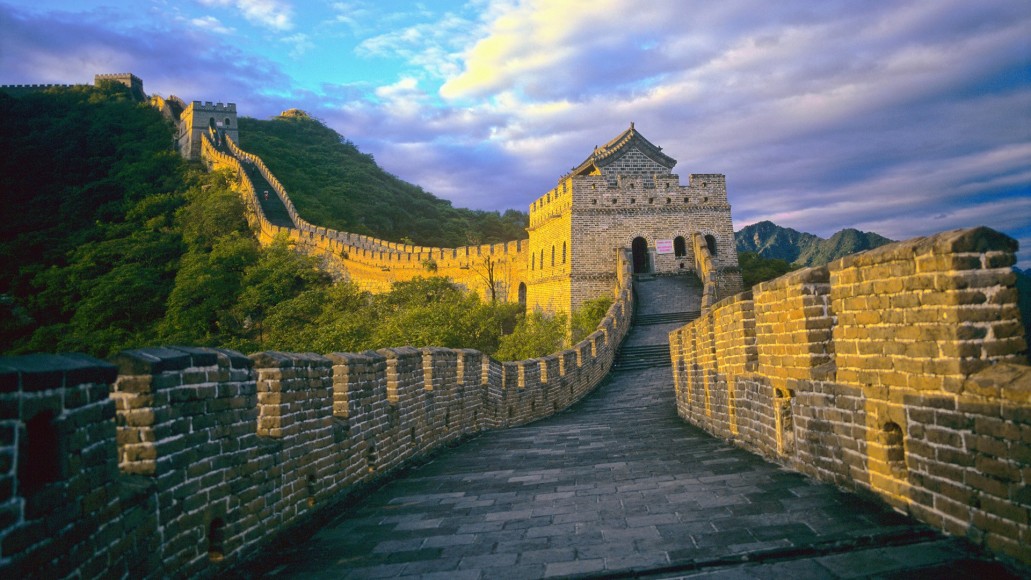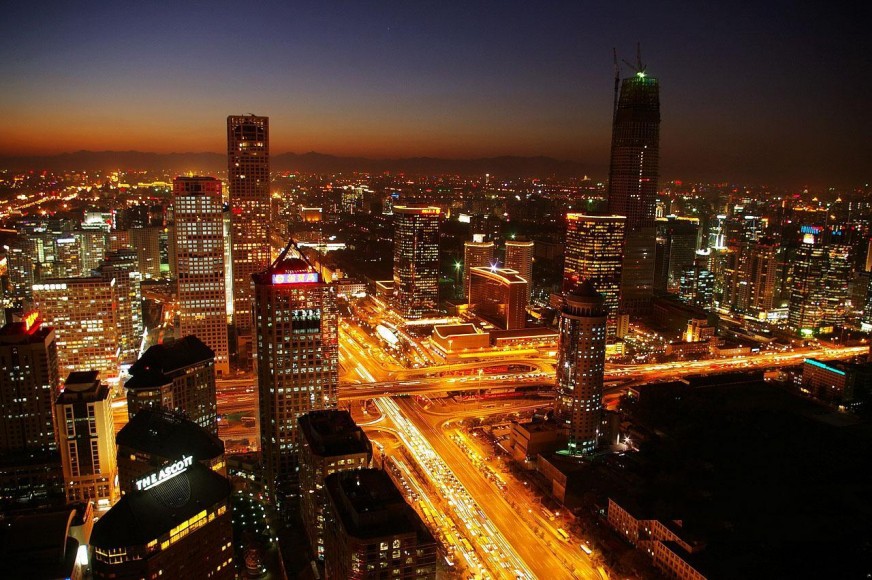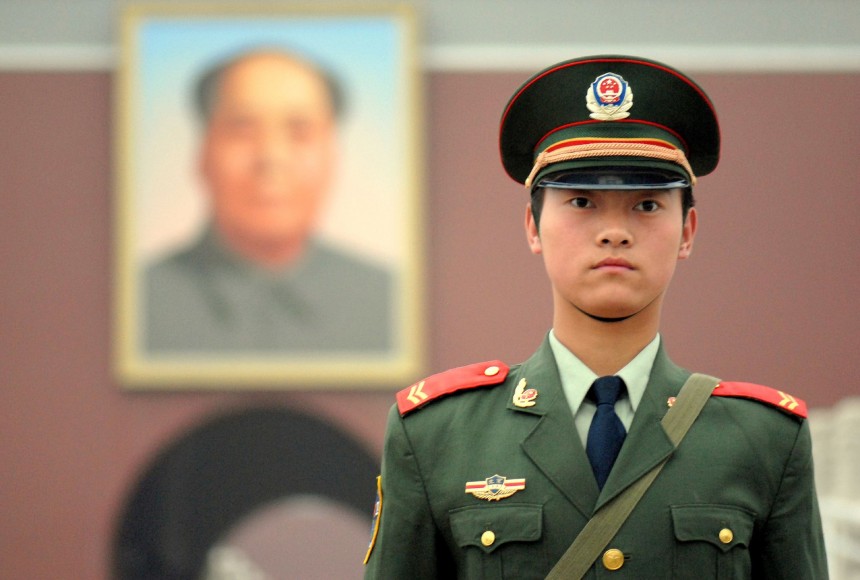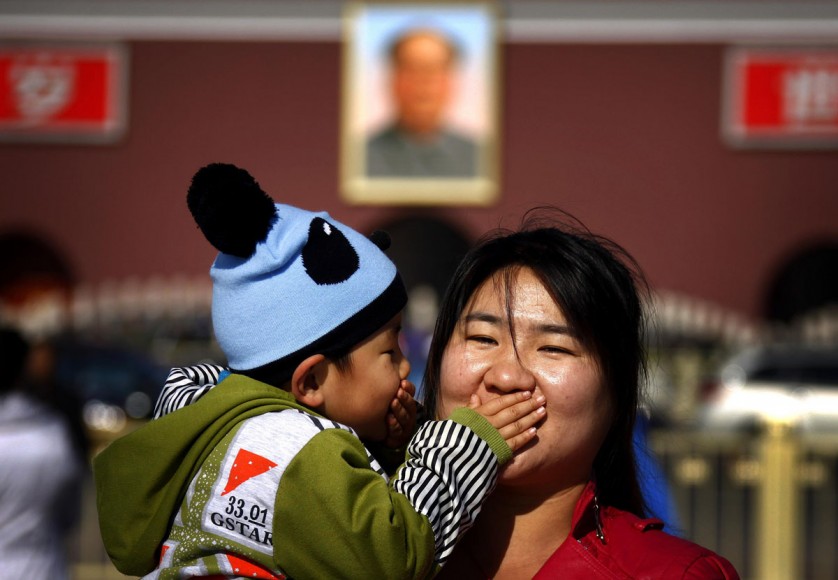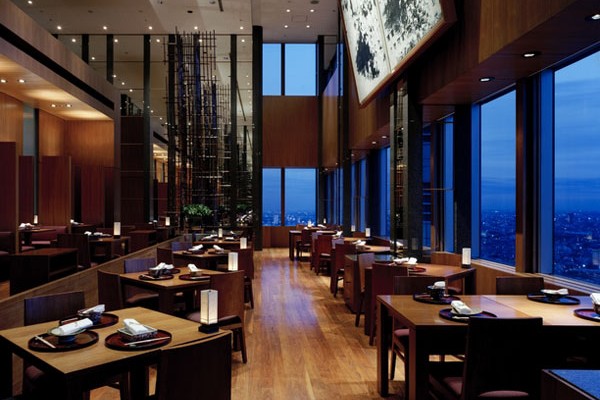As we coast through a jigsaw of traffic, my guide points out the sights. “On the left, there’s a new office building. On the right, there’s a government office building. Up ahead, that’s one of the city’s first five-star hotels”. For a country so staunchly proud of its politics, China is overtly obsessed with the superficialities of capitalism. Only here could a bland office block be of any interest, yet there is something forgivably earnest about it. I ask the driver to put some music on, and in the spirit of no-nonsense socialism, he produces a CD simply called ‘Disco’. Welcome to China, where irony just shrivels up and dies.
Whatever you do, don’t tell anyone that you’re going to China. Not unless you want teeming lists of names, addresses, hints, tips, shortcuts, scenic routes, back roads and warnings. This never happens anywhere else you go, but with China, everyone thinks themselves a Michael Palin, offering itineraries, memos and maps, saying things like “Well, if you don’t stop in Tongli, you may as well not go at all.” But no single experience can do a location justice.
It’s been said that countries are two places: the place in your mind and the place on the map. However, because so little is ever advertised about China, nothing quite prepares you for it. And for every perceived truth, there’s an ugly dichotomy.
When I first make landfall, it’s in Xi’an, 550 miles south of Beijing. The city holds the distinction of being the country’s first capital, and is therefore steeped in the kinds of feudal stories that make China so tirelessly compelling. The one thing people have here, apart from a militant stoicism, is history. The Chinese cling onto history for dear life. It defines the culture and binds communities. The first local I meet is a lady called Penny, who starts a trend that continues throughout the trip: offering mythology as fact. People talk of spectres and spirits with deadpan sobriety, as if they’re telling the world’s oldest joke. Anywhere else, this would be laughable, utter lunacy, but in China it’s accepted, even believable.
Smog enshrouds Xi’an like smoke in a dragon’s lungs. Everything has a hoary, socialist haze; pallid and indifferent. The sky hangs burdened and tense like the city’s dirty laundry. It all feels on the brink of chaos; a peaceful schizophrenia that’s about to erupt. The only discernible colour belongs to the radioactive slogans on billboards, all of which advertise exclamation-point cures to untranslatable ills.
Driving from the airport, the roads are a struggle between traditional values and imported wonder. You’re confronted with juxtapositions of poverty and wealth; of power and hopelessness; of natural beauty and forced progressionism. I’m told that Xi’an is turning into an economic hub, yet the divide between prosperity and poverty remains desperately stark, with proud monuments to business overshadowing dilapidated estates. Everywhere you look, there is binary metaphor, pitiless irony and political contradiction.
My hotel, Shangri-La, is adjacent to the Technology Zone, which sounds like something off the Crystal Maze, but with all the industriousness of a Rampant Rabbit: bright, fast, unremitting, and ultimately onanistic. It’s actually a hub for foreign investment, but gentrified places like these shaft the common person, a corridor of corruption and avarice. I think back to an article I read on the plane, reporting how university students are being forced to work as interns at an iPhone factory, on its production line, due to a shortage of labour. Even in the land of dualism, Apple is still the Antichrist.
My first stop is the world’s unofficial Eighth Wonder, the Terracotta Army, which is the one story that China wants to tell more than any other. Xi’an has more historical sites than you can shake a chopstick at, but it’s this army of the afterlife that put the city on the map. The surrounding gardens show the country at its supernal best, lending credence to all the mythology and magic expounded by the locals. It’s all dewy flora, balmy mist, gloating crickets and haunting tranquility. The breeze kisses your ear as faint as a Chinese whisper. This was the China of my mind; it actually exists.
A short walk leads to the 8,000-strong clay army, which was commissioned in 209 BC by China’s unifying emperor, Qin Shi Huang, to guard his tomb. However, no news story or travel piece can ever prepare you for the magnitude of seeing the warriors for the first time. There’s no warm-up, no curtain, and once you’ve fought past the gaggles of domestic tourists, you’re suddenly there, staring at 8,000 pugnacious men with fragmented souls. It’s not staring at the statues that leaves your heart in your mouth, but the statues staring back at you. They’re as grim, grey and deeply ethereal as everything else in Xi’an. The pits smell as old and storied as a childhood book, and the more you stare, the more you wonder, not just about the powerful vastness of it all, but the seeming impossibility of it too. What kind of early civilisation could achieve such complexity? There’s a sudden realisation that no view of human history can ever be accurate without knowing what happened in Xi’an 2,200 years ago.
There is a traditional tearoom here too. China wears its tea ceremony with simpering pride. This is a country that spits on the floor and pisses in a hole, but drinks a cuppa with complete balletic propriety. The hostess hands me a menu that reads like an alchemist’s delivery note. I thumb through the runic incantations made from flower petals, leaves, barks and herbs; brews that will make you younger, happier, healthier and hornier. I can’t remember what I order, something with dragon’s jism perhaps, but it makes my cheeks wince and my lips curl.
I finish up, say my zài-jiàns, and walk to the gift shop. Here you can meet Yang Zhifa, the chap who found the Terracotta Army, who is paid around $200 a month to sign memorabilia. His story is heartbreakingly tragic. This genial octogenarian, weathered and skeletal, whose discovery generates millions of dollars, most of which lines the pockets of officials and businessmen, has never seen a cent. It says more about the relationship between the state and the body politic than anything else I see on the trip.
Back in the city centre, I stop at a family-run diner with some fellow hacks from the UK. This place is heaving with locals, all enunciating through gobfuls of food. So-called experts always say that you should experience a city as the locals do, but put it this way: if you’d visited Bristol last week and experienced what I do in my city, it would have put you off travelling for life. You would have skipped between a flat, an office, a cafe, a few bars, a restaurant and M&S. The idea that there are real and unreal experiences is both duplicitous and pretentious, and recommending someone to eat here is the cultural equivalent of sending Mr Chang to a greasy spoon in Milton Keynes. Yes, it’s popular with the locals, not because it serves the best food in town, but because the produce is cheap, the production is cheap, and the prices are cheap.
The food is typically Chinese: noodle soups, pork ribs, stir-fried vegetables, and sautéed meats. It’s all edible, just not memorable. When people say “Chinese takeaway isn’t the same as food in China,” I can see why. I’m not trying to put the little man out of business, but for gastronomic food in Xi’an, go to a proper restaurant or a hotel. Siam Garden Terrace is a good start.
We talk with two Chinese women and the conversation turns to history – again – only this time, an international dispute: what was invented first, noodles or pasta? Surely noodles have been around much longer? Being no historian, I tell the women to leave a hundred monkeys in a room with some eggs and flour and see which dish they come up with first.
The locals will tell you that Xi’an is the real China, where all the history and authenticity lies, but I get the feeling that every community, however big or small, says the same thing. No one seems to think in modern terms and people are obsessed with rolling and folding centuries of history into dim-sum-sized mouthfuls.
Well, everyone except the children. I’m told that, due to the one-child policy, there is a generation of spoilt kids who have lost the Chinese identity, the work ethic, the political respect, and who would rather pick up a KFC bucket than a pair of chopsticks.
Despite this, Xi’an is a font of erudition and interest, relentlessly absorbing, both aesthetically and intellectually. The history here may be impossible to deny, yet the future is endlessly uncertain.
“It’s forbidden to talk about what happened here in 1989,” says Angela, my Beijing guide, in hushed shorthand. I believe her too. I’ve never been to a place as intimidating as Tiananmen Square, not because you can see the oppression, but because you can’t. This was the site of the 1989 protests, where the Chinese military opened fire on activists, and you can still feel the anguish in the air. It’s illegal to even talk about it. China’s government, its collective fear, looms menacingly on the horizon, spreading its shadowy tentacles throughout the national psyche. There is a heightened awareness to everything and the Stalinist architecture serves as a physical reminder of a subjugated people. A giant picture of Mao hangs on the Gate of Heavenly Peace – a cruel joke, a painful irony, but one the majority of Chinese, many of whom still revere the man, seem oblivious to.
Looking around, eighty percent of the people are domestic tourists, all headed towards the Forbidden City, a citadel where emperors lived gilded lives for generations, completely shut off from the public they ruled. The stories are of combat, carnality and deception; of unmerciful emperors who had armies in the thousands and equally large numbers of concubines – far too much posse for any man.
The complex is vast: 720,000 square metres, 9,000 rooms. The hundreds of classical structures are punctuated by the symbolism of colours and numbers, while the positioning of everything is dictated by feng shui and yin-yang; flow and balance. Entranceways are guarded by two lions, male and female, with ornate cedar walls that ascend to arching rooftops overseen by dragons, and every detail is examined by the Chinese visitors with forensic care. Most of it only dates back to the eighteenth century, due to fires and restoration, but don’t tell them that.
Despite being a sprawl of sameyness, the Forbidden City is impressive, and I understand why the Chinese enjoy it: for a moment, their cultural legends are tangible. But it also affirms why the country is so crippled. China’s leaders, including Mao, have always been elevated to the status of gods, and the Forbidden City is proof of that. Men lived as untouchable deities, mainly because China’s religions and philosophies are so passive and fluffy. Everything is entwined with animism, ancestor worship, folklore, ghosts, anthropomorphism, therianthropy, bestial guardians and vegetative remedies, giving exceptionalism to all but the human being. There’s no salvation, no hope, no sense of individuality, and people are marginal to a higher nature. Throw in communism and it just becomes a depressing round of social responsibility and civic duty.
Outside the city walls, a teenager jogs up and asks if his father can have a photograph taken with me. Perhaps he’s seen my photograph in The Review. Maybe he’s my first Chinese fan. Nope, he just wants his picture taken with a white man. “Ahh, Engerish” he says through a transnational smile. Though flattering and baffling, I realise that this isn’t China, not even Beijing. It’s where simple folk come to gawp and fawn. And while endlessly fascinating, the Forbidden City is a museum, a place of the past, and cities should never allow the past to dominate the present. I needed to find the new Beijing.
I meet with Alice McInerney, the fashion editor of Time Out Beijing, and we saunter through the hutongs of Dongcheng. This is proletariat country; chaotically ordered and cacophonous. Vendors bark for custom, children occupy the streets, scooters weave with sanctimonious disregard, and tourists walk with bug-eyed intrigue. There is a rawness here, one that’s missing in Xi’an.
Hutongs are the cogs and wheels of Chinese culture; the country with its lid off. The men are uniformly cold and completely indistinguishable, sporting short-back-and-sides and the nondescript fashion sense of Mahmoud Ahmadinejad. The girls are feline-pretty and doe-eyed, with cheekbones that arc like a sickle. Modern Chinese women put their intellect before their ego, which explains how they pull off geek-chic with such impossible cool.
The trade is mostly souvenir tat and street food – fatty, fishy and frugal – and the smell is of rancid oil, exhaust pipes and Marlboros. The Chinese pride themselves on serving dishes that are light, but there’s enough grease here to host an orgy.
The few art and textile shops seem disconnected, but there’s a reason for this: Alice tells me the area was slowly becoming a bohemian centre, until the government realised what was happening and began to commercialise. She arrived in Beijing, as so many expats did, during the 2008 Olympics, working as a fixer for the BBC. It’s not hard to understand why westerners never leave. If you know where to go and who to do it with, this place can be a hub of high living.
That evening, a group of us head to Atmosphere, the highest bar in Beijing, on the eightieth floor of the World Summit Wing. Finding money is the curse of the modern city. Everything has to be bigger, better, more popular, more fashionable and more expensive. Beijing is an architectural cold war, a luxury arms race, a short-term exploitation. No one ever dreamed of this; Beijing isn’t by design. It’s a jungle of best-laid plans, conquering egos and penis envy. Products and services are a transient novelty, like in Dubai and Moscow, where contemporary is always temporary.
When I speak to one to the staff, she says that Atmosphere can only do so well for so long, before a bar is built on the eighty-first floor of another building. From the ground, Beijing is a wholly impressive and functioning city, yet from here it’s a science-fiction dystopia, a mix of Blade Runner and Metropolis, all noisy lights, dense pollution and people going nowhere quickly.
At least, for now, they flock to Atmosphere which, novelty aside, is sheer indulgence. As with all of modern China, everything’s been imported from the West, including Charly, the head mixologist, who brings us a selection of his signature cocktails. Soon enough, we’re in a cataract of champagne and I’m chewing on the tarry end of a Cohiba. If you find yourself in Beijing, I couldn’t recommend this bar enough.
“How was the Great Wall?” is the first question that everyone asks about China. And when I answer, I feel a bit boorish. Hangover or not, I knew I wasn’t going to enjoy it. I wasn’t even going to write about it. There’s nothing inherently wrong with the Great Wall – in fact, the Chinese did a good job at keeping those pesky Mongolians out. They blocked, chiselled and grouted their way to thirteen-thousand miles of impenetrable protection. Don’t get me wrong, I understand the fascination. The Wall is nice in a maudlin, I’m-standing-on-a-wall kind of way. And I won’t deny that it’s deeply aesthetic, at least from afar, but I could have told you that from a postcard. Instead, I have to admit to not having the subtle sensibility to appreciate such a construction, nor the imagination to comprehend its size and significance. But it’s still just a wall, and walls have never really been my thing.
That said, the surrounding views are utterly affecting: teeming miles of thickset forest and uninhabited vastness, which cracks and creeps like a Macbethian nightmare. I approach a woman who looks and smells about 130 years old, all toothless and crumpled. She yelps and yaps at me, though I have no idea why. I pick up a snow globe about the size of a golf ball and ask how much. She takes out a piece of paper and scribbles 150, which is about £15. For a communist country, this old-timer’s got capitalism nailed. The one thing about Chinese traders is that they won’t let you leave without a sale – a game I’m always happy to play. So, we go back and forth, to and fro, up and down, until she finally sells at £1.50, which is the best haggle of my life. Welcome to the free market, grandma.
If it seems as though I didn’t warm to China, something’s gone wrong, because I really did. I loved it more than words can do justice. Was it the China of my mind? In flashes, yes, but that doesn’t matter, because the China I now know is the place on the map and the place on these pages.
I wrote a similar article for a newspaper. My editor said “Your criticisms of the Chinese government are jarring,” to which I replied “Great, job done, here’s my invoice.” “No,” she said, “I want you to edit it.” This put me in an awkward position, because I couldn’t change my experience, my perception, what I saw, what I felt, or who I spoke to. I couldn’t change my truth. There’s a reason I decided not to concentrate on things like the cuisine – because it’s not important. Food may be the great metaphor for life, but China is blessed with having bottomless metaphor everywhere you turn. And if you’re the type of person who finds interest in great walls, not in the psychological nuances of a nation, that’s fine, you’ll love China too, because it’s a Lazy Susan of choice and depth and sweet and sour.
The drive back to the airport is marked by deafening silence. Even the stasis of millions stuck in traffic somehow has meaning here. China’s past and present is a cautionary tale, a parable of how not to run a country. You only have to open a newspaper to see what’s going on. Corruption is rife, mainly because capitalism is the still the country’s dirty secret. China is a nation in the closet. There’s money, fathomless money, but it’s traded in bribes, blackmail and backhanders. China may appear to have a communist government that preaches the tenets Maoism, but it’s more capitalistic than you or I will ever be. In fact, the only western pretension that it hasn’t adopted is charity. The bourgeoisie has found the monkey’s paw, but the proletariat are too faithful to their past, their ideals, to rock the corporate boat. They fear change and officialdom. Theirs is a world where a dead man is still in power; where people are privately well-read, but publicly well-Red; and where questioning authority besmirches filial piety and face. And this tragic complexity is what makes the country so damn beautiful.
An old woman sweeps the road with a brush made of twig. Her pace is painful, going nowhere, just like the traffic. The sight is oddly bizarre, as unremarkable and mundane as the grey office buildings, but it sums up the China of my mind. As the car passes by, I can see she looks frail, almost ghostlike, dressed in traditional garb and a conical hat. This woman personifies the Chinese struggle, her life no doubt spent doing the same Sisyphean task. And though she looks trapped, destined to eke out her days retreading the same steps, you sense she knows the entire story of China as well as she knows that road. And I can’t wait to go down it again.
Words: Laith Al-Kaisy

